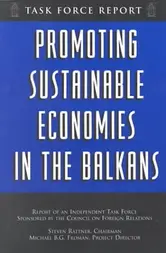- Experts
- Transition 2025
-
Topics
FeaturedIntroduction Over the last several decades, governments have collectively pledged to slow global warming. But despite intensified diplomacy, the world is already facing the consequences of climate…
-
Regions
FeaturedIntroduction Throughout its decades of independence, Myanmar has struggled with military rule, civil war, poor governance, and widespread poverty. A military coup in February 2021 dashed hopes for…
Backgrounder by Lindsay Maizland January 31, 2022
-
Explainers
FeaturedDuring the 2020 presidential campaign, Joe Biden promised that his administration would make a “historic effort” to reduce long-running racial inequities in health. Tobacco use—the leading cause of p…
Interactive by Olivia Angelino, Thomas J. Bollyky, Elle Ruggiero and Isabella Turilli February 1, 2023 Global Health Program
-
Research & Analysis
FeaturedExecutive Summary It is impossible to overstate the importance of space to the United States. For Americans, modern life depends on information from the thousands of satellites orbiting the globe,…
Task Force Report by Nina M. Armagno, Jane Harman, Esther Brimmer and Anya Schmemann February 11, 2025
-
Communities
Featured
Webinar with Carolyn Kissane and Irina A. Faskianos April 12, 2023
-
Events
FeaturedVice Chair for Supervision Michael S. Barr discusses the potential impacts of AI on financial stability and the regulatory considerations surrounding it. The C. Peter McColough Series on Internati…
Event with Michael S. Barr and Andrew Ross Sorkin February 18, 2025
- Related Sites
- More
Europe and Eurasia
Kosovo
-
Promoting Sustainable Economies in the Balkans
![]() The conflict in Kosovo, less than four years after the brutal civil war in Bosnia, was a wake-up call to the international community. The West and others had once again underestimated the powerful forces of ethnic hatred and historical grievances in the Balkans. According to this independent Task Force report, economic reconstruction alone will not be sufficient to bring long-term peace and stability to the Balkan region, although raising living standards could foster sustainable economic growth and reduce political tensions. International support and attention is a wasting asset, the report warns, and the countries in the region have only a few years to demonstrate real progress before the international community turns its focus elsewhere. Reform will be difficult. But if the Balkan countries do not reform, there will be severe limits to the amount of assistance they can expect from the outside world, and, in the absence of reform, foreign financial assistance will be of only limited utility. The Balkan counties cannot expect significant international support if they are not committed to taking the necessary steps to put themselves on the right track, and that support will be of only limited utility unless those steps are taken. Moreover, the European Union (EU) will have to articulate more clearly and credibly a path toward European integration for the Balkan economies, since the prospect of integration in the EU may well be the single most important motivating factor for undertaking reform.
The conflict in Kosovo, less than four years after the brutal civil war in Bosnia, was a wake-up call to the international community. The West and others had once again underestimated the powerful forces of ethnic hatred and historical grievances in the Balkans. According to this independent Task Force report, economic reconstruction alone will not be sufficient to bring long-term peace and stability to the Balkan region, although raising living standards could foster sustainable economic growth and reduce political tensions. International support and attention is a wasting asset, the report warns, and the countries in the region have only a few years to demonstrate real progress before the international community turns its focus elsewhere. Reform will be difficult. But if the Balkan countries do not reform, there will be severe limits to the amount of assistance they can expect from the outside world, and, in the absence of reform, foreign financial assistance will be of only limited utility. The Balkan counties cannot expect significant international support if they are not committed to taking the necessary steps to put themselves on the right track, and that support will be of only limited utility unless those steps are taken. Moreover, the European Union (EU) will have to articulate more clearly and credibly a path toward European integration for the Balkan economies, since the prospect of integration in the EU may well be the single most important motivating factor for undertaking reform.
 Online Store
Online Store

